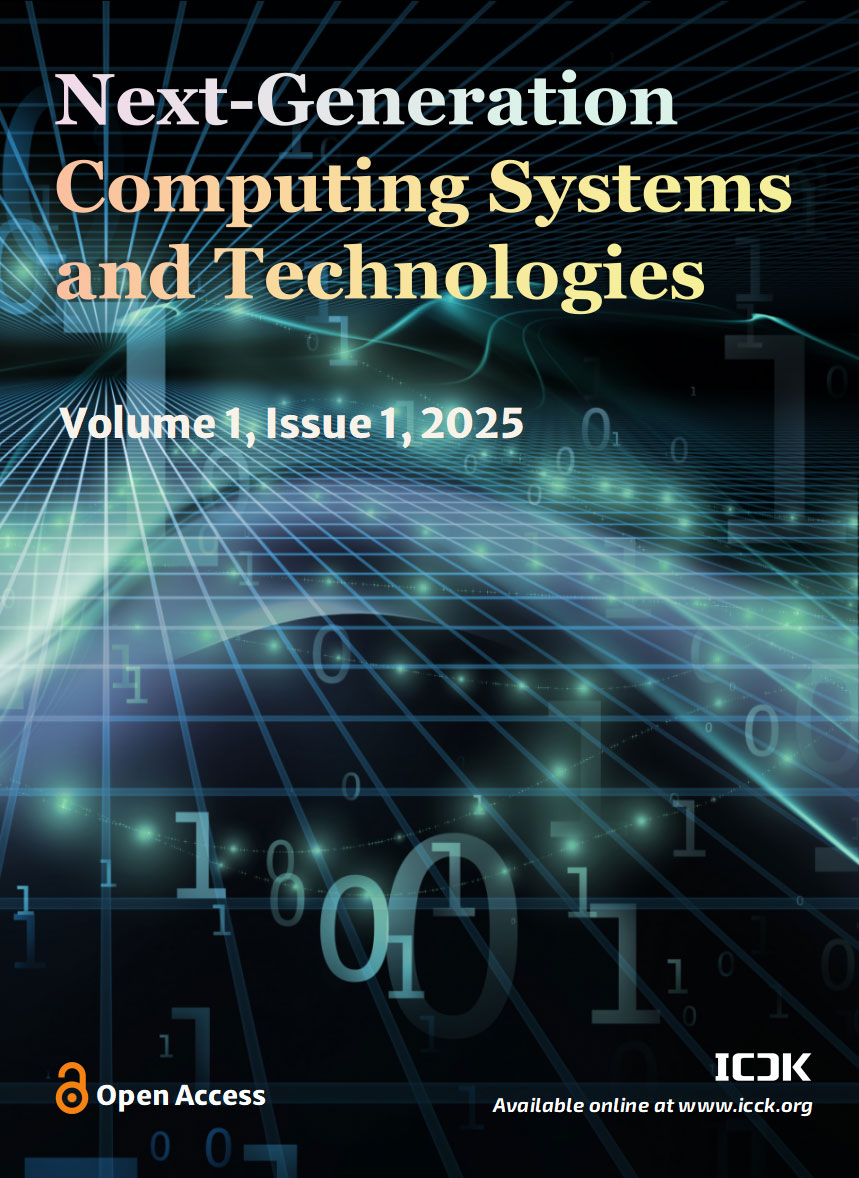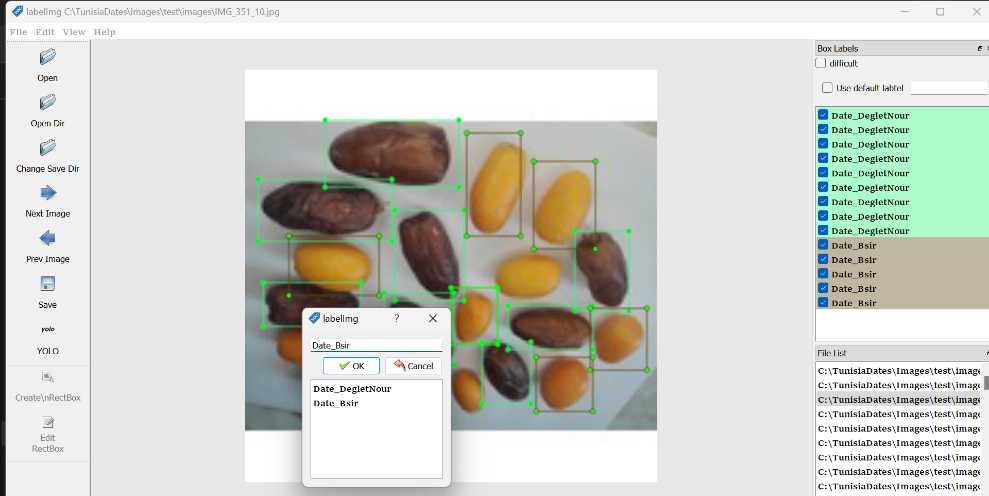Abstract
This study presents an AI-powered approach to enhance quality control and traceability in the agri-food sector, focusing on the automated detection and classification of two Tunisian date varieties: Deglet Nour and "Bsir". The main objective is to develop a smart system that can quantitatively and qualitatively determine the proportion of any contamination of one variety by the other within a batch. To achieve this, state-of-the-art object detection YOLO models, v8 and v12, have been employed, trained on a custom annotated dataset which includes a wide range of real-world images, capturing the variability in the studied date fruit size, shape, and presentation. Both YOLO models were fine-tuned over 50 epochs using transfer learning techniques, allowing them to adapt effectively to the specific classification task. Training step consisted of a thorough analysis of bounding box distributions and samples clustering, taking into account natural variations in date morphology based on their 2D images. Evaluation showed that both models achieved high detection accuracy, with YOLOv12 outperforming slightly in precision and speed, making it well-suited for real-time applications. By estimating the relative variety proportions within a mixed batch, the developed smart system supports the intelligent decision-making across the supply chain. This work lays the groundwork for embedding deep learning models into portable smart optical devices that can assess date mixtures on-site, from farms to packaging centers. Future developments will focus on expanding detection to additional date varieties and integrating the system into commercial post-harvest processes.
Data Availability Statement
Data will be made available on request.
Funding
This work was supported by the PRIMA Program under Grant No. 2132.
Conflicts of Interest
Sana Ben Amara is an employee of Boudjebel VACPA Company, Nabeul 8021, Tunisia.
Ethical Approval and Consent to Participate
Not applicable.
Cite This Article
APA Style
Raboudi, F., Rebai, O., Ben Amara, S., Fattouch, T., & Fattouch, S. (2025). AI-Powered Detection and Quantification of Local Date Varieties Using YOLO: Toward Intelligent Supply Chain Integration in Agri-Food Technology. Next-Generation Computing Systems and Technologies, 1(1), 33–42. https://doi.org/10.62762/NGCST.2025.936740
Publisher's Note
ICCK stays neutral with regard to jurisdictional claims in published maps and institutional affiliations.
Rights and Permissions

Copyright © 2025 by the Author(s). Published by Institute of Central Computation and Knowledge. This article is an open access article distributed under the terms and conditions of the Creative Commons Attribution (CC BY) license (
https://creativecommons.org/licenses/by/4.0/), which permits use, sharing, adaptation, distribution and reproduction in any medium or format, as long as you give appropriate credit to the original author(s) and the source, provide a link to the Creative Commons licence, and indicate if changes were made.


 Submit Manuscript
Edit a Special Issue
Submit Manuscript
Edit a Special Issue

 Copyright © 2025 by the Author(s). Published by Institute of Central Computation and Knowledge. This article is an open access article distributed under the terms and conditions of the Creative Commons Attribution (CC BY) license (https://creativecommons.org/licenses/by/4.0/), which permits use, sharing, adaptation, distribution and reproduction in any medium or format, as long as you give appropriate credit to the original author(s) and the source, provide a link to the Creative Commons licence, and indicate if changes were made.
Copyright © 2025 by the Author(s). Published by Institute of Central Computation and Knowledge. This article is an open access article distributed under the terms and conditions of the Creative Commons Attribution (CC BY) license (https://creativecommons.org/licenses/by/4.0/), which permits use, sharing, adaptation, distribution and reproduction in any medium or format, as long as you give appropriate credit to the original author(s) and the source, provide a link to the Creative Commons licence, and indicate if changes were made. 